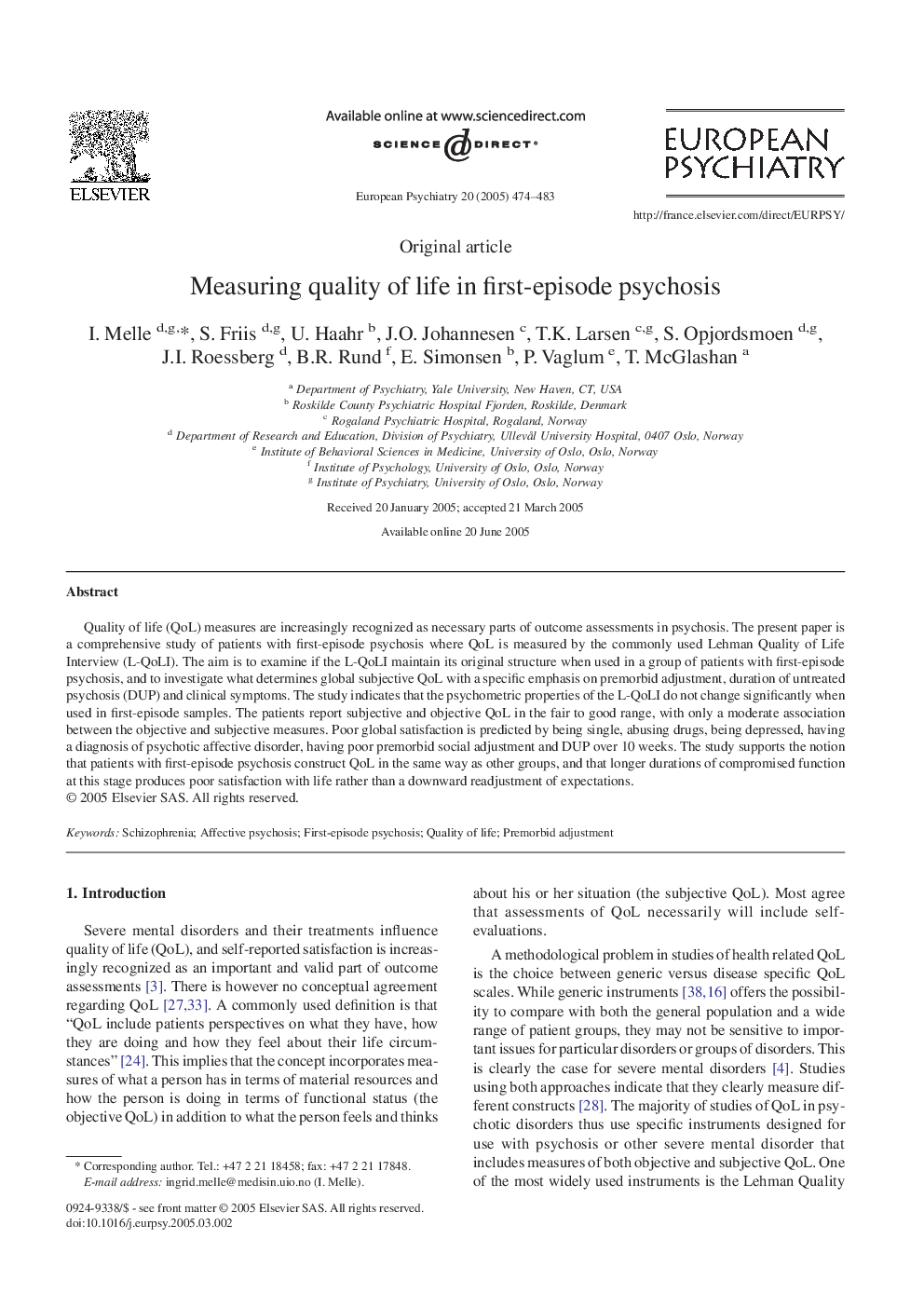| Article ID | Journal | Published Year | Pages | File Type |
|---|---|---|---|---|
| 9379886 | European Psychiatry | 2005 | 10 Pages |
Abstract
Quality of life (QoL) measures are increasingly recognized as necessary parts of outcome assessments in psychosis. The present paper is a comprehensive study of patients with first-episode psychosis where QoL is measured by the commonly used Lehman Quality of Life Interview (L-QoLI). The aim is to examine if the L-QoLI maintain its original structure when used in a group of patients with first-episode psychosis, and to investigate what determines global subjective QoL with a specific emphasis on premorbid adjustment, duration of untreated psychosis (DUP) and clinical symptoms. The study indicates that the psychometric properties of the L-QoLI do not change significantly when used in first-episode samples. The patients report subjective and objective QoL in the fair to good range, with only a moderate association between the objective and subjective measures. Poor global satisfaction is predicted by being single, abusing drugs, being depressed, having a diagnosis of psychotic affective disorder, having poor premorbid social adjustment and DUP over 10Â weeks. The study supports the notion that patients with first-episode psychosis construct QoL in the same way as other groups, and that longer durations of compromised function at this stage produces poor satisfaction with life rather than a downward readjustment of expectations.
Related Topics
Health Sciences
Medicine and Dentistry
Psychiatry and Mental Health
Authors
I. Melle, S. Friis, U. Haahr, J.O. Johannesen, T.K. Larsen, S. Opjordsmoen, J.I. Roessberg, B.R. Rund, E. Simonsen, P. Vaglum, T. McGlashan,
